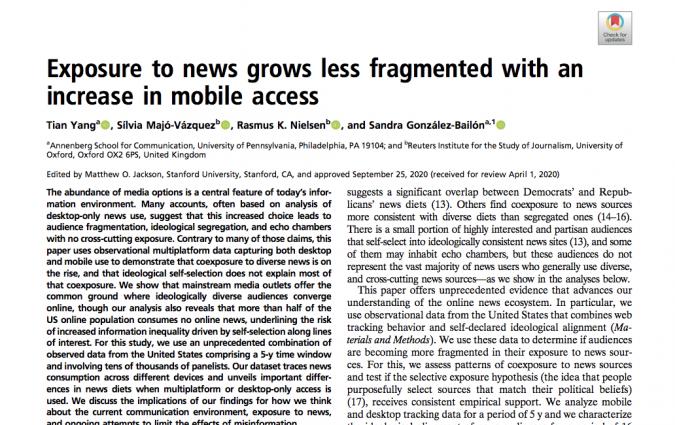The role of Journalism in the Digital Age

Reuters Institute Fellow's Paper
Anja Kröll, head of department for Austrian and International News at the daily quality newspaper Salzburger Nachrichten, has written a research paper dealing with the new relationship between journalists and their audience, called: 'The role of Journalism in the Digital Age. Being a superhero or Clark Kent: Do journalists think that Networked Journalism is an appropriate tool to work with (in the future)?'
This is how Anja describes her research: "Traditional media - like newspapers, radio or TV – are on a scary roller-coaster ride. They are struggling with a loss of audience, revenue and attention. Journalists are facing, like many other professions and industries, a digitalization of their business. Journalists are also facing an era of active citizens and are overstrained. They not only need to understand the new public and their newly adopted behaviour as contributors, but they also need to understand the audiences' desire to collaborate with journalists. One solution of how this collaboration could look like is Networked Journalism, a concept where professionals and amateurs are working together to get the real story, linking to each other across brands and old boundaries to share facts, questions, answers, ideas, and perspectives. The question remains: Do journalists think that Networked Journalism is an appropriate tool to work with (in the future)? According to interviews conducted with British and Austrian journalists, they do! For the interviewees it has already become a day to day reality of their work. It is no longer a tool one may choose to use, but has become their normal work environment. Although guidelines are largely missing, the will to collaborate with the public is strong. The value of co-creating and collaborating with the audience on news, is that their voices are becoming part the story, and the journalist is no longer some sort of patrician commentator. What is needed now is support from management, the investment to create an infrastructure, and guidelines to enable effective collaboration and co-creation with the public in newsrooms, applying techniques and tools to manage and verify the data. What remains vital are the core values of journalism: to filter, edit, check, pack, analyse, and comment – fundamentals of verification that have existed for decades and won't become obsolete. If journalists stick to these rules and editors provide them with the appropriate tools, guidance and education, there will be a place for 'good journalism' in the Digital Age. A kind of journalism that is still needed. Sometimes in the shape of a superhero but nowadays more often in the shape of Clark Kent."
As with all Fellows’ research papers, any opinions expressed are those of the author and not of the Institute.






